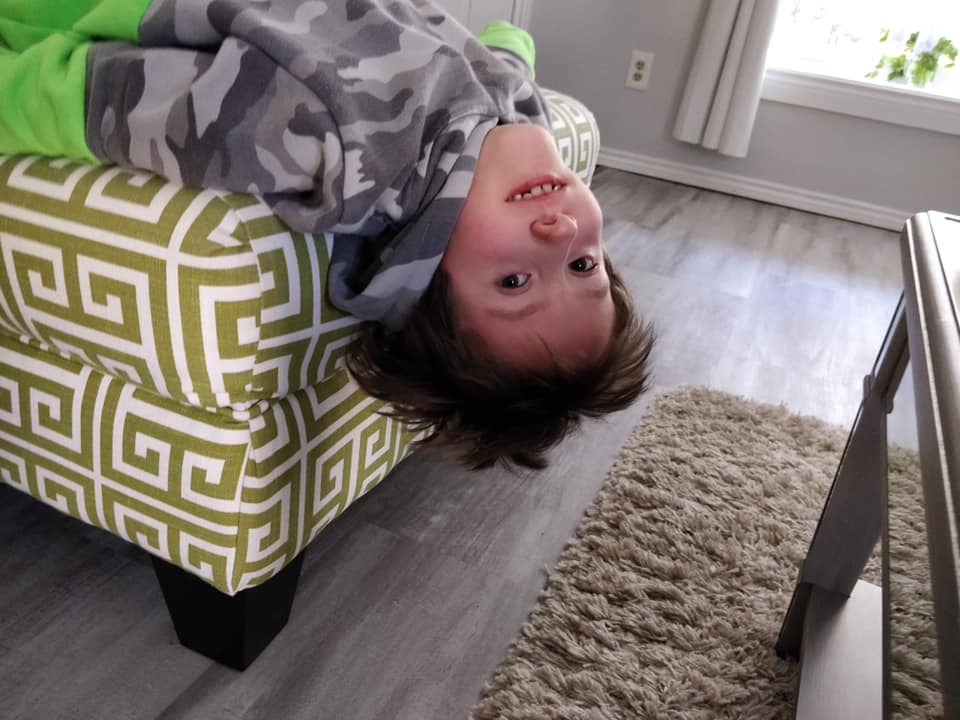“Those who are tidy, are just too lazy to search for their stuff”. That was a saying my sister and I used to excuse our cluttered rooms with when I was a teen. But is it really that simple? Is it really just about some people being tidy and some people being messy? I used to think that this was all that was to it.
Yet today, as with many things, I see it from a different perspective. There are so many nuances to being messy. Of course, not every messy person has a traumatic past, but more often than not, that is actually the case.
In the past few years Mindfulness has become more and more popular in the western world. And with that came the realization that the world around us is a reflection of how we feel on the inside. So, when you feel balanced and calm, your outside world will reflect that. It is extremely hard to be calm and centered in a chaotic environment. And at the same time, you can not remain restless in a calm and balanced environment.
Most of you will probably be able to relate to this: You clean your home and you love the freshness and balance. Then over the next few days you get busy, things are being left where you put them, kids keep dropping their toys everywhere, the laundry hamper is overflowing and before you know it, there are little things spread out all over the house. You may not notice it at first because you were too busy, but you begin to notice that you get agitated. I get that pretty often. Well, maybe every two weeks or so. And once I get agitated, I look around my own house and realize that it has become messy. Then once I clean, I feel calm and balanced again.
But that is not the type of clutter I want to write about today. What I want to focus on is the ongoing clutter, the clutter that is always there, the clutter that never gets removed. The clutter that keeps you stuck where you are emotionally. In most cases, this clutter is directly linked to traumatic events.
Clutter could stem from the fear of letting go. This would be especially the case if a person grew up during or shortly after a time of war when people did not have much and had to use everything they had until it fell apart.
Others may feel comfortable in their clutter simply because their mind is also very cluttered and clutter keeps them busy and stops them from thinking.
Whatever the reason for clutter is, the worst part is not the clutter itself, but the self-shaming, the guilt, the resentment toward one self. Not only does a trauma survivor clutter their house, but they also punish themselves for it because deep down they know that they should have a clean house when guests come to visit.
For the most part, they want their home to be clean, yet when they are supposed to declutter, they panic. Letting go of things can be just like having to face your trauma. Even if it is just subconsciously. And that will eventually cause depression and anxiety on top of everything else. In essence a clutterer clutters to bury their true feelings and then punishes him/herself for it. It is a viscous cycle.
So how can you begin the healing journey? At first you have to acknowledge that you have been suppressing an immense amount of pain for probably many many years. Then you have to be willing to let it go.
Most trauma survivors are afraid to let go of the trauma because they don’t know who they would be without it. The trauma has been a part of them for so long. Simply cleaning the house and rigorously throwing away everything would merely rip off a band-aid. This could never work because the wound underneath, the wound that was caused by the trauma so many years ago, would still be bleeding. The band-aid would just be replaced by another one.
If you truly want to change your clutter habit, you have to begin with the root cause – the trauma. I highly recommend seeking support from a trauma informed professional to help you with your internal clutter. And then, as you heal on the inside, you will be able to transform your surroundings.
I have been helping many trauma survivors over the years to declutter their mind and transform their life. So, if this article speaks to you, and you feel ready to let go of your past and redesign your life, feel free to reach out and book your free consultation. Or, if you would like to learn more about me, my story, and the work I do, check out “Journey to Your Self – How to Heal from Trauma” on amazon.



Very interesting and helpful.
Excellent. Learned so much from this article. Thank you. Nancy
Thank you so much, Nancy. I am glad my article resonated with you.
Hmm. I mean, wow.
Some distant past trauma comes into focus as I read this article. And some much more current trauma as well.
Thanks for the article, Sandra. It gives me some much needed direction in a complicated–I mean complicated like a maze–mental landscape.
Hi Lawrence, I am so glad my article resonated with you. Best of luck for your healing journey.
This is me! OMG, I knew it was a mental health issue, but to link it to the trauma I experienced growing up just made so much sense. I grew up in tge Barrio, my family were prison gang members. Not just that, but in the 70s, as a child, I lived in hiding for awhile as we had contracts on our lives. I became an educated nurse, but cannot let go of things, stuff, sentimental reasons.
I’ve put off therapy, but your article really hit me hard, and I will reach out to a mental health therapist. I have to, thank you.
Hi Linda, I am so glad my article brought so much awareness for you. I wish you the best of luck for your search of a qualified, trauma informed, mental health therapist.
My wife passed 7 years ago. I got addicted to model trains, guns, stuff I got but never used. Collecting firewood, my back yard is s cluttered mess. People did not tell me I had an ocd and I could not see it. I will try to clean things up but am 76. I have had another trauma recently caused by my realization of the stuff in the house and yard. I did not get into drugs or booze but my bad addictions sadden me. God did not help me realize what I was doing and had done till too late.
Hi Kim, I am so very sorry for your loss. I can only imagine how hard the past 7 years must have been. It may not seem so, but I do believe that God did help you in his way. He helped you find something to focus on to make your journey through grief a bit more manageable. And now he helped you again by becoming aware of your addictive pattern, and is guiding you toward healing, because you are ready. When we look at addictions, and start to unravel the why and how we got there, we can see that they are at their core a coping mechanism. When we become aware of our destructive patterns, it can feel as if we are in a daze. It all seems like too much to handle, but please know that it will get easier. I commend you for wanting to release the clutter both within and around you. It is such a huge step forward. I am here for you if you feel drawn to reaching out.